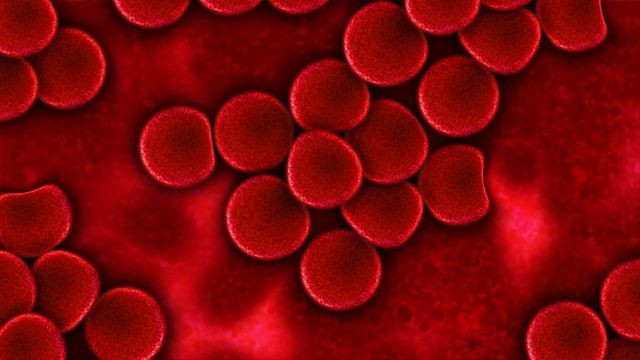Scientists Create Red Blood Cells In Lab Using Stem Cells, Moving Us Closer To Artificial Blood For Transplants

The world of medicine has transformed in ways that our grandparents could not have imagined, but the ability to create artificial blood for transfusions has eluded us. However, new research claims to have created just this - human blood in a lab. Although it’s not ready for mass production quite yet, researchers hope that day will come soon.
A team of researchers at the University of Bristol and the National Health Service Blood and Transplant say they've created a technique that coaxes stem cells to produce red blood cells in a lab setting, The BBC reported. At the moment, the team can't make more than 50,000 red blood cells in one setting, which is far too little for a transfusion. For example, according to The BBC, a bag of blood contains about a trillion blood cells. However, the team view the achievement as a major step forward in the goal of creating an unlimited blood supply for patients.
Read: Why Blood Type O Positive Is More Common Than AB Negative
The next step would be to replicate these results on a much larger scale.
“There is a bioengineering challenge," David Anstee, a scientist involved in the research, told The BBC. "To produce that much at scale is quite a challenge, and really the next phase of our work is to look at methods of expanding the yield."
What’s more, even if they are able to create blood on a scale large enough for it to be used in medical purposes, this lab-made blood would still be far more expensive than traditional blood donations. For this reason, it would likely be produced only for individuals with extremely rare blood types and does not replace the need for blood donations.
The vast majority of blood types fall into one of the major ABO groups, but according to The American Red Cross, a very small percentage of the population have extremely rare blood types. This makes it difficult to find blood matches in the case of medical emergencies. These rare blood types are unique to certain racial and ethnic groups. For example, U-negative and Duffy-negative blood types are unique to the African-American community.
Source: Trakarnsangra K, Griffiths RE, Wilson MC, et al. An immortalized adult human erythroid line facilitates sustainable and scalable generation of functional red cells. Nature Communications . 2017
See Also:
Paper Strip Device Determines Type In Just 30 Seconds, Has Potential To Save More Lives
Why Is AB Blood Type So Rare? It’s All About The Red Blood Cells



























